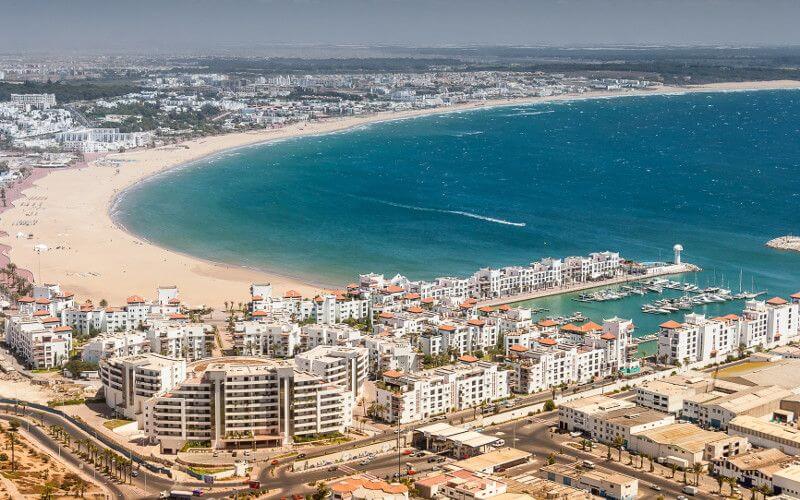Morocco Sees Surge in British Tourists as Spain Faces Anti-Tourism Protests

Many British tourists have abandoned Spain for Morocco due to persistent protests against mass tourism accused of causing the housing crisis.
Protests against mass tourism continue in the Canary Islands. A new demonstration is planned starting May 18. "From now on, we will carry our fight into the very spaces where their predatory model is perpetuated," declared the activist group Canarias tiene un límite (The Canaries Have a Limit). The activists accuse mass tourism of being the cause of the housing crisis. According to them, real estate prices are too high, roads are too congested, and the way of life is eroded by mass tourism. They have committed to targeting tourist hotspots, disrupting public events, and "confronting political leaders."
"We will boycott public events, confront political leaders during their appearances, and occupy symbolic tourist spaces to clearly show that we will not stop until real change has taken place," the group specified. "The Canary Islands can no longer be a postcard backdrop for the pleasure of a privileged few." They expect appropriate measures to be taken by the authorities. "This reaction follows a strike by 170,000 hotel and restaurant workers that took place a few days ago across the archipelago. Residents denounced low wages and poor working conditions, despite the boom in the vacation industry," the group adds.
"The local government of the Canary Islands has announced its intention to address the problems causing the protests. Although it has not gone into details, the reforms would be radical," said Jessica de León, Minister of Tourism and Employment of the Canary Islands. She added: "The new regulations must align with today’s social and environmental realities, correcting obsolete elements and integrating changes brought by national and regional decisions, including those of the Constitutional Court." A new legal framework is expected to be put in place in the coming months.
The Spanish official says she "completely agrees" with a speech given by an opposition politician, stating that Morocco’s growing popularity as a tourist destination posed a threat to the Canaries. She acknowledged that Morocco "is an increasingly important competitor." She also notes that the kingdom is achieving a "clear and notable increase in tourism investments" with the roadmap set for the 2030 World Cup.
The appeal of Morocco to tourists is real. Many British tourists have abandoned Spain for Morocco: "I’m happy not to visit. Even if I can understand their frustrations, it will end up backfiring on the protesters. No tourists, no jobs. There are plenty of other places to visit," commented a reader to the Mirror. "I’m perplexed when they say ’don’t come anymore’. Who are they? If people stop going to the Canaries, the entire economy collapses. I really don’t understand how these places can survive without visitors," questions another tourist.
Last year, the Canary Islands welcomed a record number of 17.9 million visitors, including 15.5 million international tourists. Among them, 15.5 million were international tourists, an increase of 10% compared to the previous year, and about 1.8 million were domestic tourists from mainland Spain.
Related Articles
-

Marrakech Emerges as Surprise Christmas Hotspot for US Travelers, Outshining Beach Destinations
12 September 2025
-

Ryanair’s €800 Million Gamble: 1,000 New Jobs as Airline Shifts to Low-Cost Engine Maintenance Hubs
12 September 2025
-

Casablanca Real Estate Plummets: Prices and Sales Nosedive Across All Sectors
12 September 2025
-

Morocco’s Trade with Israel Soars: Textile and Agri-Food Exports Defy Protest Movement
11 September 2025
-

Marrakech Defies National Trend: Luxury Real Estate and Land Sales Soar Amid Market Slowdown
11 September 2025